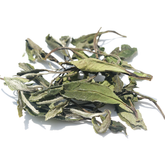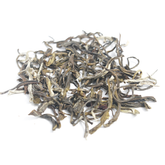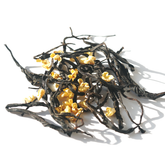What Tea Gives You Energy? Is It Effective?|NPTEA
Where does the body's energy come from?
In biology and nutrition, when we say energy we mean the energy needed to supply the body to carry out its daily activities. In the human body energy is specifically related to the following components. The first is carbohydrates, which are found in rice bread. This is the body's primary source of energy, when we consume carbohydrates, the human body carbohydrates are converted into glucose for the body's cells, which is then stored in the body as glycogen, which is then ready to release energy. Body fat, fat is also an important source of energy, especially in the case of prolonged exercise. Fat stores more energy than carbohydrates, and the body provides about 9 calories of energy per gram of fat, but only about 4 calories per gram of carbohydrates and protein. Proteins, although they are mainly used to repair and build body tissues, the body also converts proteins into energy under extreme conditions, such as prolonged lack of food intake, lack of carbohydrates in the body and inadequate supply of fats.
What teas provide energy?
When I was a graduate student in college I did a study on tea regarding the effects of the caffeine contained within tea on the body. We found that this is the most common refreshing ingredient in tea, stimulating the central nervous system and increasing alertness and energy levels. Most teas contain caffeine, especially the black and darker teas of the six major tea types which usually contain higher levels of caffeine. The level of caffeine is directly related to the degree of fermentation of the tea, but it is important to note that some specific teas, such as Yunnan's Pu-erh Raw Tea, generally contain higher levels of caffeine than the rest of the tea producing regions.

We went on to discover that tea also has a similar component to caffeine, theophylline, which also helps to improve concentration and boost energy. Tea polyphenols, which have excellent antioxidant properties, and while polyphenols are primarily known for their antioxidant properties, they may also indirectly affect energy levels by improving circulation and boosting metabolism. Finally tea contains an ingredient called an amino acid, such as L-theanine, which enhances brain function and counteracts to some extent the anxiety caused by caffeine with a calming effect. While amino acids do not directly provide energy on their own, they are helpful in boosting energy states.
To summarize
Our research has found that there are indeed some components in tea that can provide energy, especially the theophylline and caffeine components of tea that can stimulate the nervous system and make people more energized. However, it is important to note that tea is not a very effective energy drink, and a glass of glucose water is usually more effective than a cup of tea when you are in desperate need of energy. Glucose is a simple sugar that is quickly absorbed by the body and converted directly into energy, especially after exercise or when you need to regain energy quickly. In contrast, tea provides mainly caffeine and some amino acids (such as L-theanine), which, while improving alertness and concentration, does not provide a lot of direct energy.
SEE MORE
If you have questions about selecting tea:
Learn-more-about-chinese-tea
If you have questions about the benefits of t
Health-benefits-of-chinese-tea
If you have questions about brewing tea:
How-to-brew-loose-leaf-tea






